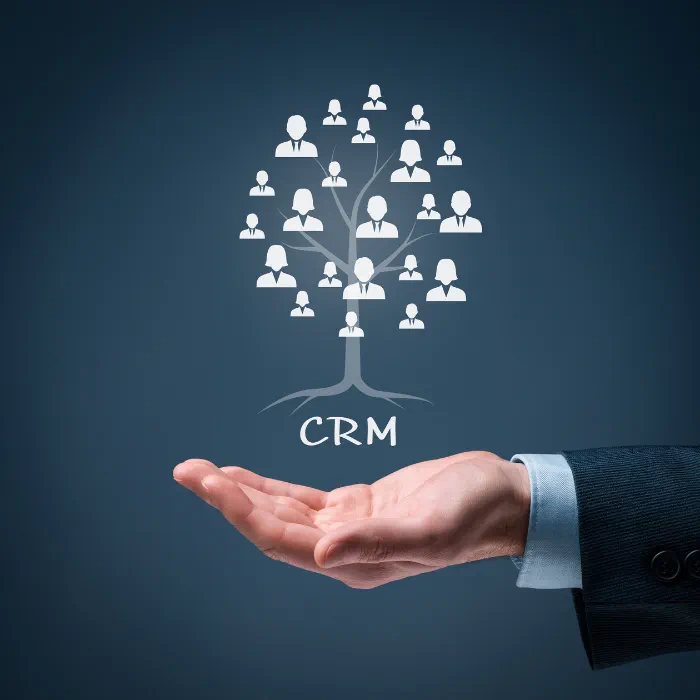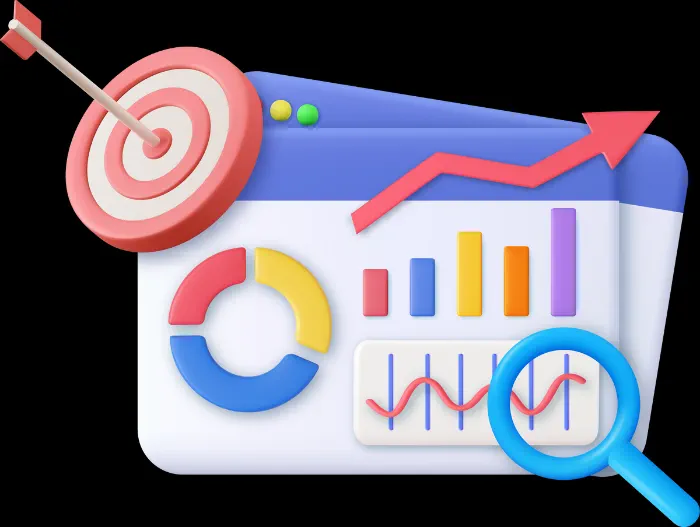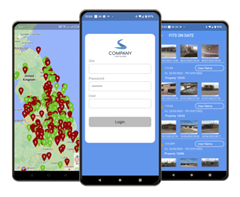Unlocking the Potential of Data in a CRM System

22/01/2024
Lazerstation
Harnessing the power of CRM systems
Welcome to a quick guide on harnessing the power of CRM systems to unlock the potential of data! In today's fast-paced business landscape, effectively managing customer information is crucial for success.
CRM systems organise and analyse this data, enabling businesses to cultivate customer relationships and drive growth.
The significance of CRM systems in managing customer information cannot be overstated in our age. These systems provide a hub for storing customer data, tracking interactions, and collaborating with colleagues. By managing customer information, businesses can optimise their relationships, make decisions based on data insights and increase growth.
Unlocking the potential of data through CRM systems offers benefits. Businesses gain insights into customer preferences and behaviours, leading to targeted marketing efforts, personalised communication strategies, and enhanced customer relationships. Furthermore, CRM systems streamline processes, boost productivity, and facilitate decision-making. With a platform for all customer-related information, businesses can better understand their customers.

Preferences & Behaviours
To gain insights into the preferences and behaviours of customers, businesses can collect, organise and analyse data. These systems assist in improving customer relationships by personalising communication and implementing targeted marketing strategies. This leads to increased customer satisfaction, sales, and long-term customer loyalty development. Contacts can be reached through channels like Email, Mailshots and SMS.
CRM system's primary purpose is to optimise customer engagement and drive business growth by providing a view of customer data. This allows for communication and targeted marketing strategies that enhance customer satisfaction, increase sales, and foster long-term loyalty.
By utilising CRM systems, businesses gain an understanding of customer preferences and behaviours while making data-driven decisions to build strong relationships with customers.
Customer data collection is an aspect of CRM systems. Businesses employ forms, surveys, or analyses of purchase history to gather valuable customer information.
Understanding customer preferences, needs, and behaviours is crucial for marketing efforts. It allows businesses to personalise their outreach and identify opportunities for upselling and cross-selling. Moreover, it enhances customer service.
CRM systems offer tools and techniques for organising and analysing customer data. These systems enable the categorisation of customer information, making it easily accessible and usable. Additionally, CRM systems provide data analytics capabilities that help organisations gain insights and make decisions based on the data. This understanding creates personalised experiences, strengthens customer relationships, and drives business growth.
CRM systems offer a variety of tools and techniques for organising and analysing customer data. These include segmenting data, cleansing it from duplicates or errors, and visualising patterns within the data as predictive analytics to forecast customer behaviour. These tools enable organisation and analysis of customer data that yields insights for making informed decisions.
CRM Dashboards & Analytics
CRM dashboards play a role for sales and marketing teams by giving them real-time insights into customer interactions, sales pipelines and performance metrics. They offer a way to understand essential data, such as conversion rates, patterns in customer behaviour and revenue forecasts. This empowers teams to make informed decisions quickly, prioritise tasks effectively, and identify opportunities for upselling or engaging with customers. The best part is that these dashboards are customisable and user-friendly, allowing different individuals within an organisation to access the most relevant information. With all customer data centralised in one place, these dashboards greatly enhance the management of customer relationships. Contribute towards improved efficiency and overall business growth.
CRM Graphs
Graphs play a role in visualisation, transforming data sets into easily understandable visual narratives. They come in forms such as line graphs, bar charts, pie charts, and scatter plots, each tailored for different types of data analysis. For instance, line graphs are ideal for showcasing trends over time, while pie charts illustrate proportions. Graphs simplify identifying patterns, outliers and correlations that may go unnoticed in data. They are indispensable for presentations and reports as they make data more accessible and engaging for the audience. Whether in business, education or research settings, graphs serve as tools for communicating complex information.
Enhancing Customer Experience
The foundation of any business lies in improving customer relationships. CRM systems play a role by providing insights into customer preferences and behaviours. These insights empower me to personalise interactions and offer solutions. By utilising the data from CRM systems, I can build trust, enhance satisfaction and foster long-term partnerships with my valued customers. It allows me to proactively address their needs and exceed their expectations, resulting in more profitable relationships.
Customisation and personalisation based on customer preferences and behaviours
As a business, understanding my customers' unique preferences and behaviours is essential for providing personalised experiences. CRM systems enable you to gather and analyse data effectively, tailoring your products or services to meet their needs. This level of personalisation helps cultivate customer relationships while enhancing satisfaction. With CRM, you can create marketing campaigns, recommend products, and communicate in a manner that resonates with each customer. By leveraging their data, every interaction becomes meaningful and valuable.
Anticipating trends and advancements in CRM technology
Looking ahead excites us about the future of CRM technology as we anticipate advancements in areas like artificial intelligence (AI) and automation. These technologies can improve CRM systems by offering businesses insights, automating processes, and delivering personalised customer experiences. With these advancements, CRM will remain a tool for managing customer information and driving business success.




